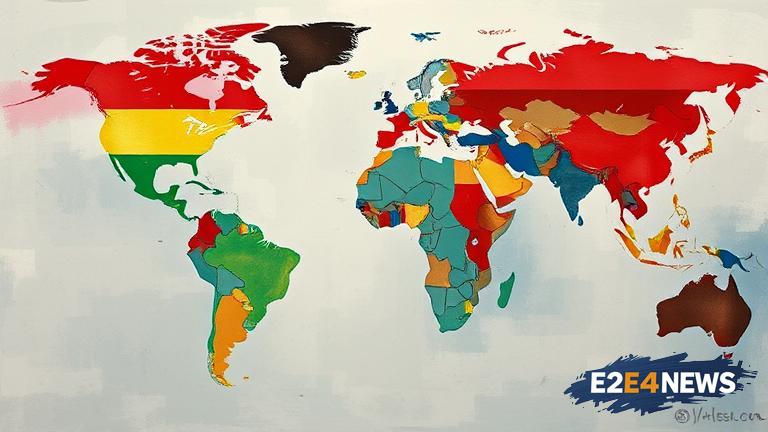The Global South, comprising countries in Africa, Asia, and Latin America, is increasingly speaking out against the rampant hypocrisy of Western nations. For decades, Western countries have preached democracy, human rights, and the rule of law, while often violating these principles in their own actions. The Global South is now demanding a more equitable and just international order, where all nations are treated with respect and dignity. This shift is driven by the growing economic and political clout of countries such as China, India, and Brazil, which are no longer content to be dictated to by Western powers. The Global South is also frustrated by the West’s double standards, where they are expected to adhere to strict rules and regulations, while Western countries flout these same rules with impunity. The issue of climate change is a prime example, where Western countries have historically been the largest emitters of greenhouse gases, but now expect the Global South to bear the brunt of the costs of mitigation and adaptation. The Global South is also angry about the West’s continued interference in their internal affairs, where they are often subjected to regime change, economic sanctions, and other forms of coercion. Furthermore, the Global South is fed up with the West’s paternalistic attitude, where they are treated as inferior and in need of guidance and instruction. The rise of the Global South is not just about economics and politics, but also about culture and identity. Many countries in the Global South are reclaiming their cultural heritage and promoting their own values and traditions, rather than blindly following Western norms. This is reflected in the growing popularity of non-Western media, such as Bollywood films and K-pop music, which are challenging the dominance of Western cultural exports. The Global South is also promoting its own development models, which prioritize social and economic justice, rather than just profit and growth. For example, the Brazilian government’s Bolsa Familia program, which provides cash transfers to poor families, has been hailed as a model for reducing poverty and inequality. Similarly, the Indian government’s Make in India initiative, which aims to promote domestic manufacturing and entrepreneurship, is seen as a way to reduce dependence on Western imports and create jobs and prosperity for Indian citizens. The Global South is also increasingly cooperating with each other, through organizations such as the BRICS grouping (Brazil, Russia, India, China, and South Africa) and the African Union. These organizations provide a platform for countries to share knowledge, expertise, and resources, and to coordinate their actions on the global stage. The rise of the Global South is not without its challenges, however. Many countries in the region still face significant development challenges, including poverty, inequality, and lack of infrastructure. Additionally, the Global South is not a homogeneous entity, and there are many differences and divisions within the region. Nevertheless, the trend is clear: the Global South is rising, and it will no longer be ignored or marginalized by Western powers. The West needs to wake up to this new reality and start treating the Global South with the respect and dignity it deserves. This means recognizing the sovereignty and autonomy of Global South countries, and engaging with them as equals, rather than trying to dictate to them. It also means acknowledging the historical injustices and inequalities that have been perpetrated against the Global South, and taking steps to rectify them. The future of international relations will be shaped by the rise of the Global South, and it is time for the West to adapt to this new reality. The Global South will no longer be silent or submissive, and it will demand a more just and equitable international order. The West needs to be prepared to listen and to respond, rather than trying to maintain its dominance and control. The era of Western hypocrisy is over, and a new era of international relations is beginning. The Global South is rising, and it will not be ignored.
